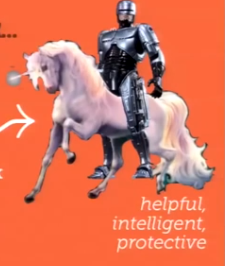nescala 2014 roundup
by Hung Lin @hunglin
Who is @hunglin?
- software engineer @ Audax Health
- use Scala for about 2.5 years now
- co-organizer of DC Scala meetup
- was Java coder before turned
- still trying to understand the gist of monad, macros, dependent types, ...
What is nescala?
- nescala stands for North East Scala
-
every year around Feb/March time since 2011
- 2011 @ NYC
- 2012 @ Boston
- 2013 @ Philly
- 2014 @ NYC
-
speakers are
- people from Typesafe
- people from academia like EPFL
- people from Twitter, Linkedin, Meetup, Tumblr, ...
- cool kids of Scala communities
It's One of the Big Event in Scala Community
nescala 2014
- March 1-2, 2014
-
Day 1:
- 13 talks @ NYU
- happy hours @ Foursquare HQ
-
Day 2:
- unconference @ Meetup HQ
buzz words
- Functional Programming
- Type System
- Scala Macros
- sbt
- streaming
- Programming Languages Concepts
- Finagle
1st talk: Scala's Type System
by Heather Millerwhat's Scala's Type System?



abstract type members
trait Pet
class Cat extends Pet
class Person {
type Pet
}
class Susan extends Person {
type Pet = Cat
}
class Person[Pet]
class Susan extends Person[Cat]
existential types
case class Fruit[T](val weight: Int, val tooRipe: T => Boolean)
class Farm {
val fruit = new ArrayBuffer[Fruit[T] forSome { type T }]
}
higher-kinded types (container types, type constructor)
trait C[M[_]] { }
//C is higher-kinded type because it abstracts over type constructor M
implementation of functor in Scala
trait GenericFunctor[->>[_, _], ->>>[_, _], F[_]] {
def fmap[A, B](f: A ->> B): F[A] ->>> F[B]
}
trait Functor[F[_]] extends GenericFunctor[Function, Function, F] {
final def fmap[A, B](as: F[A])(f: A => B): F[B] =
fmap(f)(as)
}
trait Applicative[F[_]] extends Functor[F] {
def pure[A](a: A): F[A]
def apply[A, B](f: F[A => B]): F[A] => F[B]
final def apply[A, B](fa: F[A])(f: F[A => B]): F[B] =
apply(f)(fa)
override def fmap[A, B](f: A => B): F[A] => F[B] =
apply(pure(f))
}
typeclasses (it's so 2013)
// typeclass:
trait Ordering[T] {
def compare(x: T, y: T): Int
}
// typeclass instance:
implicit object intOrdering extends Ordering[Int] {
def compare(x: T, y: T): Int = x - y
}
// usage:
def sort[T](s: Seq[T])(implicit evidence: Ordering[T]): Seq[T]
// use context bound to write less codes
def sort[T: Ordering](s: Seq[T]): Seq[T]
type level programming
WAT?
EPFL interview question
(if you want to be Odersky's PhD student)
please implement a map, using scala compiler
let's define interface first:
- input: types
- output: types
how to do it?
- define type level functions
- apply those functions during type checking
use implicits for defining relations on types
class HasCapital[T <: Country, C <: City] {
def capital: C
}
implicit val capitalOfFrance = new HasCapital[France, Paris]
implicit val capitalOfGermany = new HasCapital[Germany, Berlin]
implicit val capitalOfUK = new HasCapital[UK, London]
applying type level functions
def lookupCapital[T](implicit ic: HasCapital[T, C]): C = {
println(s"the capital is ${ic.capital.toString}")
ic.capital
}
val c = lookupCapital[France]
dependent types
(cool kids' buzz word of 2014)
- Types that includes logical propositions, for example, type safe key value store. The type of the key contains the type of the value.
- shapeless library (HList) by Miles Sabin
Odersky's talk @ strangeloop 2013 The Trouble With Types
resources
May Your Data Ever Be Coherent
by Daniel Spiewak
def sumPairs(left: List[Int], right: List[Int]): Int = {
if (left.isEmpty)
0
else
(left.head + right.head) + sumPairs(left.tail + right.tail)
}
def pairInts(x: List[Int], y: List[Int]): List[(Int, Int)] = ???
def sumPairs(pairs: List[(Int, Int)]): Int = {
if (pairs.isEmpty)
0
else {
val (left, right) = pairs.head
left + right + sumPairs(pairs.tail)
}
}
def sumPairs(pairs: List[(Int, Int)]): Int = pairs match {
case (left, right) :: tail =>
left + right + sumPairs(tail)
case Nil => 0
}
xs.length is bad and useless
length explode one datum into twohow do you do merge sort?
how do you do matrix operation?
take away:
- constrain your representations
- focus on data flow, not control flow
- if you cannot constrain your data, constrain its origin (make it only come from one place
Summingbird
by Oscar BoykinMacros v.s. Types
by Eugene BurmakoFunctional Programming is Terrible
by Runar BjarnasonWartRemover
by Brian McKennasbt 1.0
by Josh Suerethand more
- Learning Scalaz by Eugene Yokota
- scalaz stream by Paul Chiusano
- Better Living Through sbt @ Banno by Luke Amdor
- GeoTrellis by Josh Marcus
- what you see is what you get by Doug Tangren
- Play2, Akka and WebSocket @ NYTimes by Victor Chan
Happy Hours @ Foursquare HQ

Day2: Unconference
- rethink Scala Macros by Eugene Burmako @ EPFL
- finagle by Moses Nakamura @ Twitter
- scalaz
- haskell
- new libraries
- new programming languages
- and a lot, a lot more
call for ACTIONS
- We should participate
- We should give talks
- We should host
- nescala 2011 @ NYC
- nescala 2012 @ Boston
- nescala 2013 @ Philly
- nescala 2014 @ NYC
nescala 2015 @ DC
Questions?
- anyone going to Scala Days 2014 @ Berlin?
- anyone going to nescala 2015?